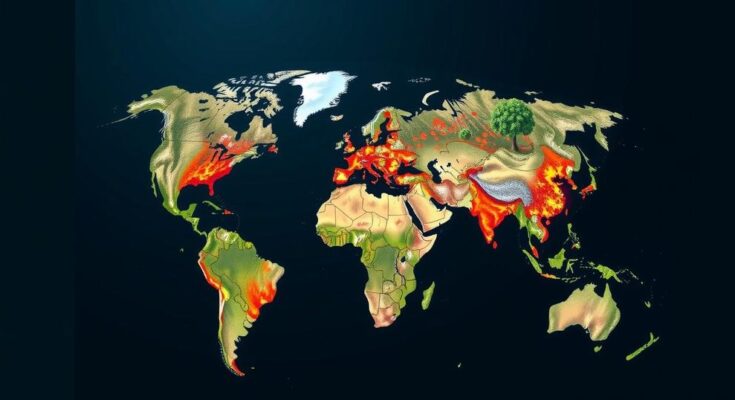The COP29 conference revealed that wealthy nations are unwilling to fulfill their financial obligations to combat climate change, pledging only $300 billion annually instead of the required $1.3 trillion. Their inaction jeopardizes not only vulnerable developing nations but also global efforts to transition to clean energy. The need for reform in international climate negotiations has never been clearer.
The COP29 conference highlighted the failure of wealthy nations to shoulder the financial responsibilities for the climate crisis they have largely caused. Despite the urgent need for action, the developed countries’ commitment of only $300 billion annually to assist poorer nations by 2035 is severely inadequate compared to the $1.3 trillion considered necessary by economists. This gap threatens both the vulnerable economies of developing nations and the global effort to mitigate climate change. Rich nations’ reluctance to provide the necessary funding not only hinders poorer countries’ ability to transition to clean energy but also postpones the necessary global measures needed to avoid catastrophic climate impacts.
COP President Mukhtar Babayev acknowledged the disappointment in the final agreement while attributing the inaction to persistent resistance from certain Western governments. As developing countries grapple with increasing climate-related disasters and economic impacts, their leaders express profound concern over the insufficient commitments made. For example, this year’s floods in Brazil incurred costs that alone exceed the annual funding proposed for the most vulnerable nations. The economic implications of inaction are striking, with calls for investment in climate finance posited as imperative both for ethical reasons and economic returns.
In light of these challenges, there is hope for change with Brazil taking over the COP30 presidency and signaling intentions for more ambitious proposals. Nevertheless, for substantial progress to be achieved, an overhaul in the COP negotiation framework is necessary to ensure accountability and effective implementation of climate commitments.
The article underscores the critical shortcomings at the COP29 climate conference in addressing the financial responsibilities of wealthy nations regarding the climate crisis. Rich industrialized countries, responsible for significant historical carbon emissions, have been criticized for failing to meet financial obligations to support developing nations. The discussions at the COP29 summit aimed to secure commitments for funding to mitigate climate impacts and aid adaptation to climate change, particularly for the world’s most vulnerable countries. With climate change intensifying and leading to increased natural disasters, the urgency for substantial investment in clean energy solutions is paramount. The divergence between the needs expressed by developing nations and the funding actually pledged reflects systemic issues in international climate governance.
In conclusion, COP29 has illuminated the alarming inadequacy of commitments from wealthy nations in supporting developing countries amidst a worsening climate crisis. The disparity between the proposed funding and the actual financial needs highlights a critical failure of accountability and responsibility. Without substantial reform to the COP process and a commitment to ambitious climate financing, countries around the world will continue to face dire consequences from climate change. The time for action is now, and a unified international response is essential to avert further crises and foster equitable global development.
Original Source: bylinetimes.com




